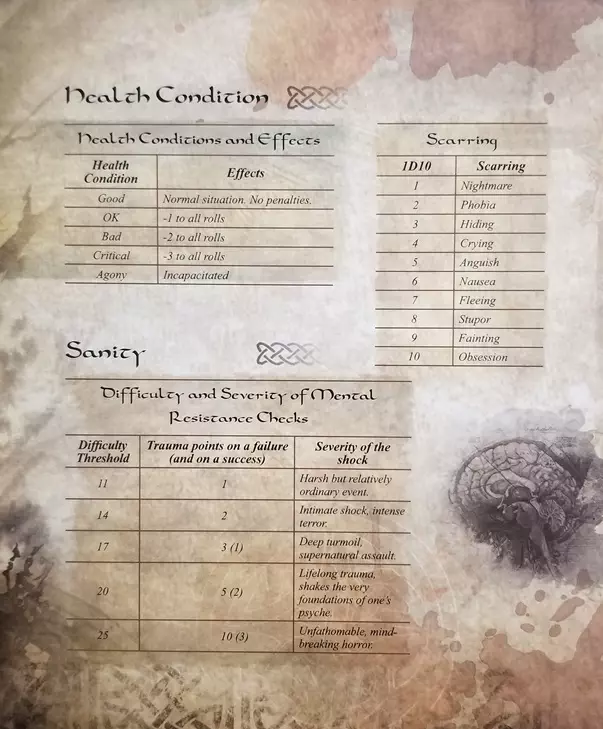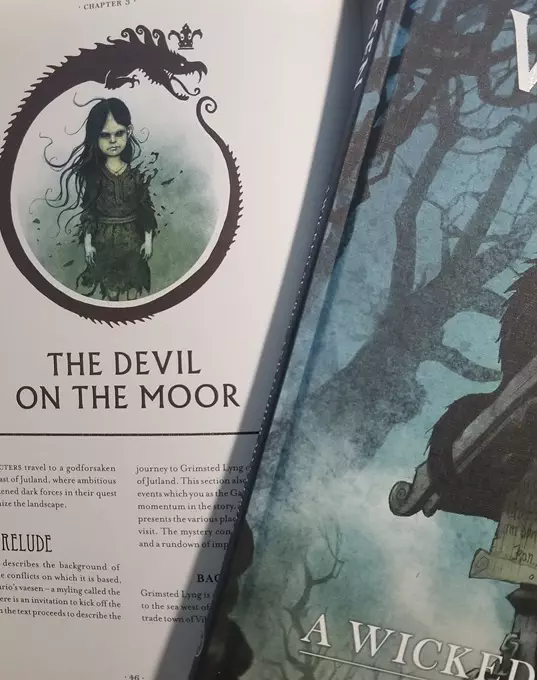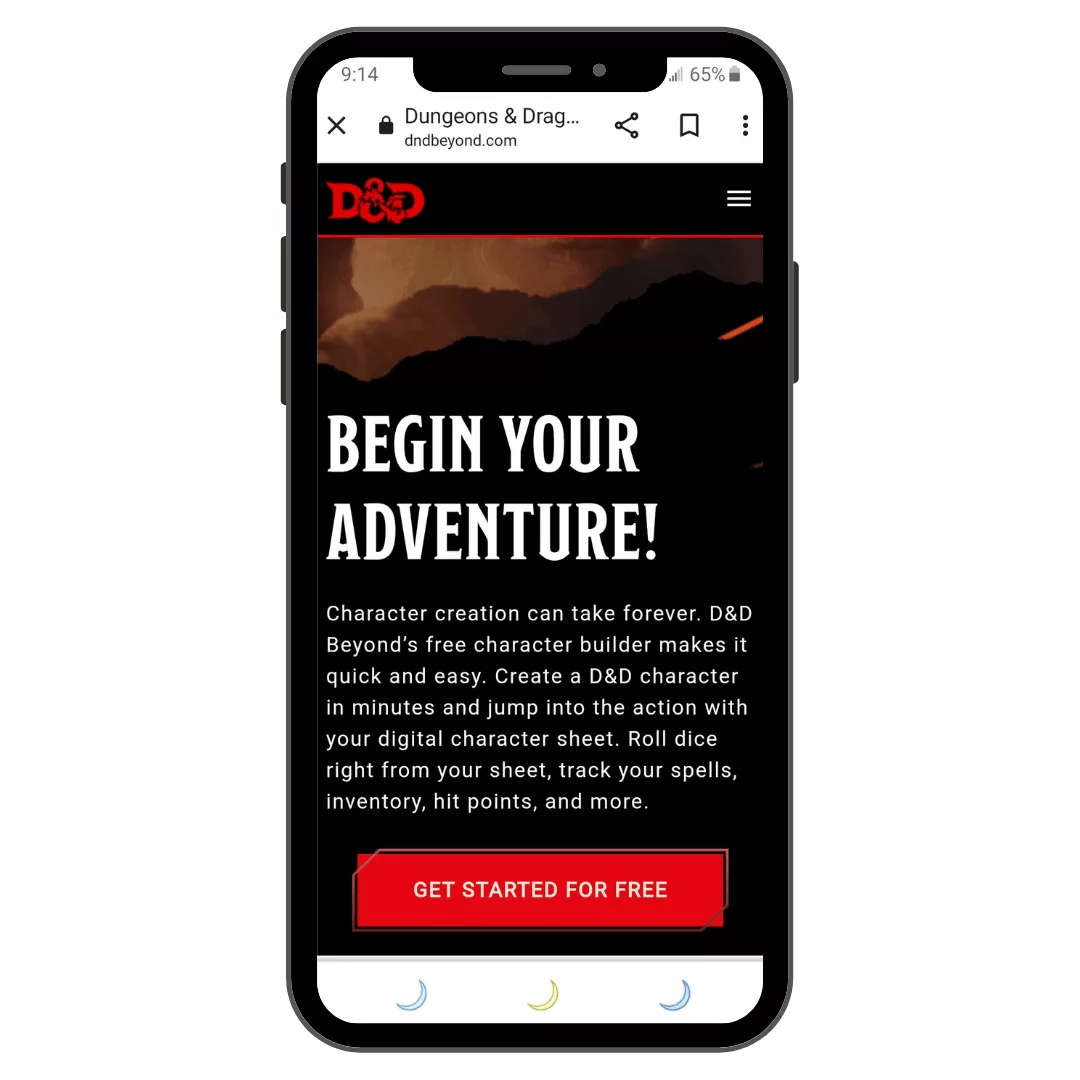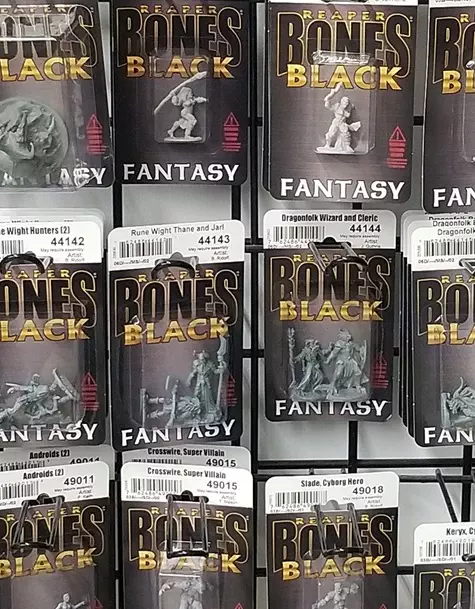For many, January comes with the mindset of “new year, new goals,” and that mentality can also translate to the tabletop! While some roleplayers are happiest being the player, there are always the ones who want to branch out and try their hand at running a game. Whether you are new to the role of Gamemaster (a.k.a. GM) or a seasoned veteran, January is the month to celebrate those who take up that mantle. In honor of New Gamemasters Month, we have compiled a list of some of our favorite GMing items to help your game go smoother, whether it’s your first or your thousandth.
Books
Books, whether physical or digital, seem like a no-brainer when it comes to running a campaign. However, there are many types of books a Gamemaster can (and should) have at their disposal. A good, comprehensive GM guidebook, for example, can offer tips, advice, and techniques for running successful sessions. As there is a large variety of such guidebooks, it is important to consider the specific needs, experience level, and preferences of the GM in question when picking one up. In addition to having access to the core rules for whatever game you may be running, campaign books and well-written adventure modules are a great asset. These books can help a GM save time while providing a rich and engaging storyline to follow. We have found campaign books and modules to be a great tool when testing the waters as a new GM because they more or less lay the story out for you as you get comfortable with your storytelling skills while leading the players through their adventure. When looking for ready-made adventures, setting books also typically include a few. Additionally, both setting books and artbooks can be a great source of inspiration and lore.
Looking for something a little more personal or something to help you stay organized? Journals and notebooks are an excellent way to keep track of important session notes, jotting down ideas, or planning future sessions. They also become a treasure trove of memories and potential source material after the campaign ends, making them a great keepsake and learning tool. Every campaign we run always begins by going out and picking up a new set of journals so we can document our adventures.
Digital Tools
While we realize that much of the point of sitting around a table with friends is to step away from the digital, there are a lot of ways technology can enhance a GM and player’s experiences. For example, a collection of atmospheric music or a subscription to a TTRPG music service can be a great way to add a new level of depth to your sessions. Music will not only help immerse the players further into the world they’re playing in but will also set the mood throughout the session. There are far too many of these services to name, but we typically use Ambient Realms as they are free and local to us. In addition to sound, intricate maps can also help with a player’s immersion. For those of us who struggle with finding a map we like or want to create our own unique world, map-making software can help with creating said maps for adventures, dungeons, and landscapes. Many online platforms such as Roll20, Fantasy Grounds, or D&D Beyond not only provide some map-making options but also allow you to import maps on top of providing tools to further aid in running and organizing the game itself.
The role of Gamemaster is far wider than simply “knowing the rules and running the game.” A Gamemaster should be able to do a fair bit of storytelling, world-building, and all of the extra general preparation between sessions on top of knowing the rules of the system they are running. There are several online workshops and courses that current and new Gamemasters can consider attending if they want to improve their skills, learn new techniques, or expand upon their repertoire. Every January since 2014, Monte Cook Games has paired with several other game companies to run a month-long workshop for new GMs. In their workshop, they help lay the groundwork for learning new game rules, teaching the mechanics, and growing your confidence in your knowledge of the system and game setting. These seminars, courses, and workshops can be very educational for new and veteran GMs alike.
Staying Organized

Organization as a GM is key for running a smooth campaign. Many Gamemasters opt for using a GM screen to help with this. Some game companies print GM screens for their games with all of the supposed important information on them already, but, personally, we like having ones we can customize ourselves and reuse with every campaign. Not only can we store notes, charts, and bits of lore in easy-to-read places, but these screens are perfect for keeping essential information hidden from the players. Reference cards, for example, are a great time-saving resource that can be kept behind a GM screen. Whether purchased or homemade, they can contain quick rules, NPC details, or other essential information that needs to stay organized and readily available.
Though not entirely necessary, an electronic or physical initiative tracker is an excellent organizational tool. Simple or complex, having a way to keep track of initiative will aid in streamlining gameplay and making your encounters more dynamic during combat. Some GMs (ourselves included), just use pen and paper to keep track of such things, but there are some nice options available to pick up and use.
Tools for the Table
There are lots of ways to lead players through a campaign. Some Gamemasters prefer to rely heavily on storytelling and using the theatre of the mind to progress while others like taking a more tactile approach. A collection of battle maps is a great way to immerse your players in the game. This can be done with print-and-play maps or through the creation of custom maps using customizable game mats and tiles. Miniatures, standees, or even tokens can be used to represent monsters and characters and act as a visual aid on a map. On top of that, maps with grids make measuring distances even easier for spellcasting, sprinting, or range attacks.
Most TTRPGs use dice, so having an extra set or two available for a player to borrow is not a bad idea for your first game night. Extra sets also come in handy when the luck gods frown on you and you need to mix it up. Dice jails, while gimmicky and sometimes silly, can also keep the mood lighthearted for the players who are constantly having bad rolls. As we have several nice sets of metal dice and gemstone dice, we are fans of using a dice tray to protect both the table and the dice as we game. Others prefer a dice tower to ensure better randomization in their rolls. Many of these accessories are not only practical but can add a touch of style to your tabletop setup!


